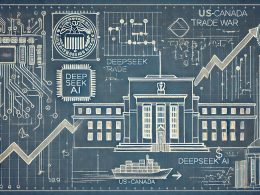by Brad Tank, Chief Investment Officer—Fixed Income, Neuberger Berman
Mervyn King has been on the virtual speaking circuit this past year, promoting the book he co-authored with John Kay, Radical Uncertainty: Decision Making Beyond the Numbers. As a former governor of the Bank of England and now Alan Greenspan Professor of Economics at the NYU Stern School of Business, he has had some interesting views about the role of central banks.
Particularly eye-catching was an article he wrote for Bloomberg in March, “The Looming Test for Central Bank Independence.” On the 70th anniversary of the Treasury-Federal Reserve Accord, which reestablished the U.S. central bank’s independence, King warned not only that central banks are risking their credibility, but that failure would thereby increase the likelihood of political encroachment—ultimately threatening our hard-earned, 40-year victory over volatile consumer prices.
We believe the coordinated dovish response of major central bankers to the recent uptick in inflation puts these warnings into very sharp focus.
Radical Uncertainty
The first way central banks may be risking their credibility relates to King’s subject of “radical uncertainty.”
No one knows what the economy will look like in three years’ time. But the Federal Reserve is telegraphing a high level of certainty that it will still require rock-bottom interest rates.
Unless the Fed is right, we see no positive outcome. If it lets the economy run too hot, problematic inflation could set in. If it nips unexpected inflation in the bud, it reneges on today’s assurances and potentially unleashes doubt upon the markets.
“The best bet for staying afloat in such uncertain times is to keep our policy options open,” King wrote. Apparently, that’s not the way today’s central bankers see it.
No Clear Role
The second way central banks may be risking credibility could be a still bigger threat to their independence.
King points out that, beyond stabilizing markets at the height of the emergency, central banks don’t have a clear role in the current crisis. Monetary policy is a set of counter-cyclical tools, but the recent recession was not a cyclical recession but a state-mandated temporary shutdown. Cutting rates won’t persuade people to go back to theaters and restaurants during a pandemic, as he puts it. It’s up to governments to manage that.
King also worries about adding corporate bonds to quantitative easing purchases. Because not all companies issue investment grade bonds, this implicitly makes credit and liquidity allocation decisions that should be the preserve of governments, he argues. It’s difficult to explain why fear of rising yields is crushing growth stocks while leaving credit markets unscathed without mentioning central banks’ support for the latter but not the former.
Crossing the Political Threshold
The former Bank of England governor could go much further.
Take climate change, for instance. It’s sensible that climate risk is now an input into the Bank of England’s macroprudential considerations. But plans for the European Central Bank and the Riksbank to bring climate criteria into their QE decisions arguably cross the political threshold, as do the aims of the 83 central banks forming the Network for Greening the Financial System.
Similarly, the Fed’s new policy framework “emphasizes that maximum employment is a broad-based and inclusive goal,” in the words of its chair, Jerome Powell. A strong economy particularly benefits “low- and moderate-income communities,” he observed.
Certain groups get left behind in the jobs market, but we know from the past five years that they can find work if a cycle lasts long enough for that market to become really tight. Will the Fed therefore remain accommodative much later into cycles, to achieve “inclusive” employment? It’s not clear, but Powell’s current fixation on regaining the final eight million jobs lost to the pandemic—when those roles may be gone forever and it could take the economy some time to generate new ones—suggests where the bias is.
Perfect Recipe for a Coup
As King wrote in his “Looming Test” article, inflationary pressures ultimately conflicted with the Fed’s formal commitment to support the 1940s war effort by capping long-term Treasury yields. That tussle with government resulted in the separation of powers in the Treasury-Federal Reserve Accord, which ultimately allowed Fed Chair Paul Volcker to administer the harsh, inflation-beating medicine of the early 1980s.
To secure those gains, his successor, Alan Greenspan, insisted on a Fed mandate that was clearly defined, tightly constrained and transparently communicated. In our view, this not only made necessary policy changes predictable for markets, it also robbed governments of excuses to reassert undue influence.
Today, those lessons are in danger of being forgotten. There is mission creep in the way major central banks interpret their mandate. They often lack the policy tools to effect key parts of these new missions. And that could set them up to fail and squander their credibility.
We see that as the perfect recipe for a coup against their independence.
Copyright © Neuberger Berman














